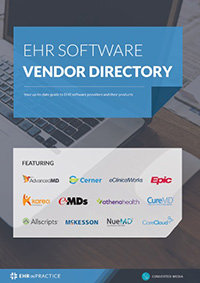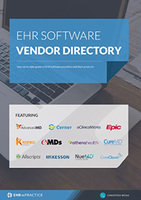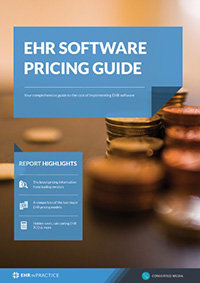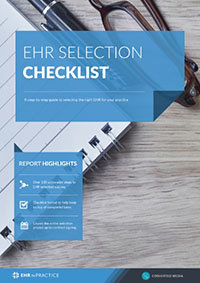What happens if I am not ICD-10 compliant?
Earlier this summer, the U.S. Department of Health and Human Services (HHS) finalized the Oct. 1, 2015, date for health care providers, health plans, and health care clearinghouses to become ICD-10 compliant. The adoption of ICD-10 serves as the driver behind a long overdue modernization of the US Healthcare System, paving the way for widespread adoption of EHR and more sophisticated data collection and analysis. However, the process of change has been full of political fits and starts set against a backdrop of apprehension from the medical community.
With the deadline upon us, questions remain regarding the challenges or issues that await a practice that has not adopted ICD-10. The answer to this is quite simple; it will be difficult if not impossible for an organization to remain viable in the marketplace with ICD-9 after October 1.
Reasons for urgency
Although the government has gone to great lengths not to appear as the big government bogeyman practices to become ICD-10 compliant, it would be foolish to be lulled into the false assumption that the compliance deadline is optional. Yes, there has been a precedent of government initiated programs being largely optional for a long period of time. A case in point are the Meaningful Use regulations that for years dangled a carrot in front of organizations. However, despite its many delays, the ICD-10 transition is firmly committed to using the stick rather than the carrot. One should treat the transition as something that must be done.
Recommended reading: 4 EHR systems ready got the ICD-10 transition
The reason for this urgency rests in the fact that an organization who has not transitioned by October 1 will be akin to a person traveling to Italy and attempting to spend the old Italian Lira. The Italians will certainly understand what you are attempting to do. However, they will not accept it. The reason being, it has no value, as it cannot be traded in the market place. Think of ICD-9 like the old Italian Lira, its familiar, we understand what it does, but it has become useless in the present day marketplace. This parable is ICD-10 compliance in a nutshell as non-compliant organizations will be made obsolete, due to the fact that reimbursement through CMS and private payer programs will be nearly impossible.
Potential penalties
As if being largely pushed out of reimbursement for services wasn’t enough, non-compliant organizations covered by HIPAA must utilize ICD‐10 or face substantial fines if transmitting PII using ICD-9. These penalties include up to $25,000 per violation with CMS increasing its maximum penalty to $1.5 million per violation for extreme and willful violations. Organizations that are not covered by HIPAA such as property and casualty insurance health plans, workers' compensation programs, and disability insurance programs, are not required to transition.
With the deadline upon us, questions remain regarding the challenges or issues that await a practice that has not adopted ICD-10.
Despite attempts by HHS to sugar coat the government response to organizations that fail to meet the October 1 deadline, the consequences are serious. However, it's not all doom and gloom as the agency has responded to a late summer push by medical advocacy groups to create some sort of leeway for good faith attempts at compliance. If an organization is in the process of transitioning or has difficulty working out transition-related kinks, some cushions have recently been placed in the regulations. For example, of the handful of concessions by HHS, organizations will not be penalized in the first year after the compliance date with claims denials or penalties as long as the diagnosis code used is from the right family of ICD-10 codes.
Despite last minute pragmatism by HHS, the deadline for becoming ICD-10 compliant should be treated as such…a deadline. Regardless of one’s opinion of ICD-10 it is a regulatory reality and in order to remain viable organizations must embrace it, even if it is done with a bit of trepidation.
Free white paper

EHR Vendor Directory
Get the most up-to-date directory of EHR software vendors. Find the best software for your practice.

Featured white papers
Related articles
-

How EHR can ensure compliance on regulations of substances
How EHR impacts the regulation of substances and compliance
-

The Pros and Cons of the ICD-10 Transition: Does One Outweigh the Other?
The ICD-10 transition is less than a year away, but do the pros of ICD-10 outweigh the cons?
-

How to ensure that EHR communications are HIPAA compliant
Are messages sent through your EHR HIPAA-compliant? Here are some guidelines on tightening up pat...



